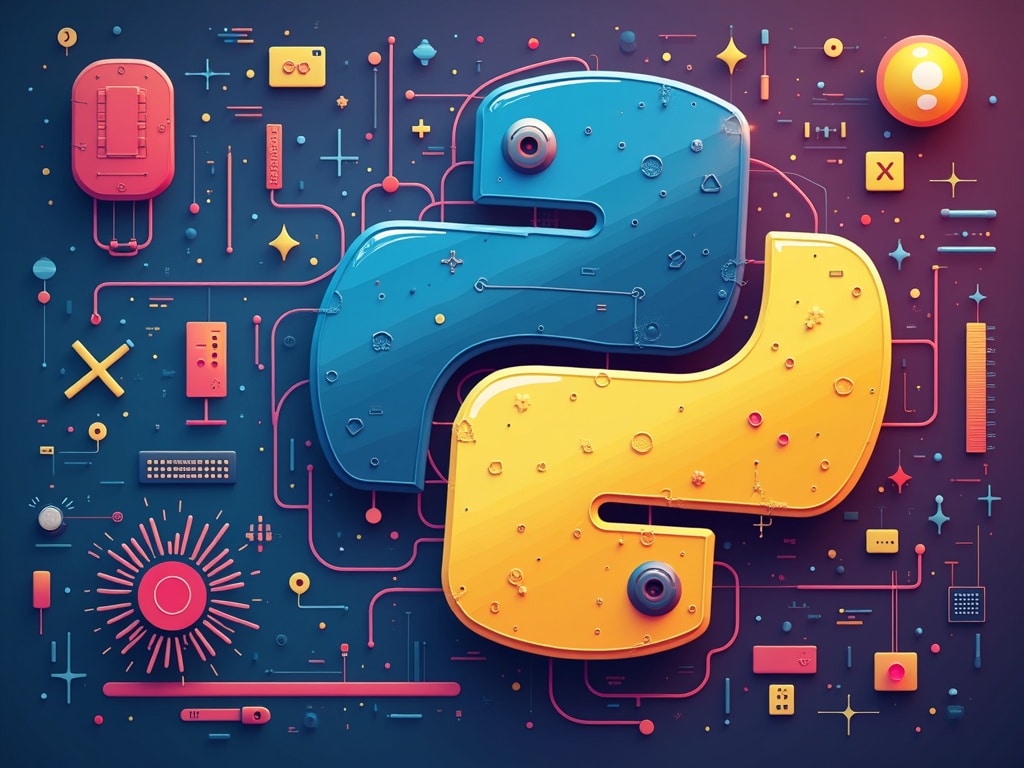Python Project Ideas for Students: Level Up Your Coding Skills
Imagine turning lines of code into something real, something tangible. Not just abstract algorithms, but functional programs that solve problems, automate tasks, or even entertain. That’s the power of Python projects, and they’re your ticket to coding mastery. Whether you’re a beginner just starting or an intermediate coder looking to refine your skills, there’s a project out there waiting for you.
Why Python Projects Matter for Students
Forget dry textbooks and theoretical exercises. Python projects offer a dynamic, hands-on learning experience that solidifies your understanding of programming concepts. They transform you from a passive learner into an active creator.
- Practical Application: Applying what you’ve learned to real-world scenarios cements your understanding.
- Problem-Solving Skills: Projects force you to think critically and creatively to overcome challenges.
- Portfolio Building: Showcase your abilities to potential employers with impressive project examples.
- Increased Confidence: Successfully completing a project boosts your confidence and motivates you to learn more.
- Deeper Understanding: You’ll learn by doing, uncovering nuances that textbooks often miss.
Beginner-Friendly Python Projects
Starting your coding journey? These projects are designed to be accessible and rewarding, even with limited experience:
1. Number Guessing Game
A classic for a reason! This project involves generating a random number and prompting the user to guess it. You’ll practice:
- User input
- Conditional statements (if/else)
- Loops (while)
- Random number generation
2. Simple Calculator
Build a basic calculator that performs addition, subtraction, multiplication, and division. This project reinforces:
- Mathematical operations
- Function definitions
- Error handling (e.g., division by zero)
- User interface basics (input/output)
3. Mad Libs Generator
Create a program that asks the user for different types of words (nouns, verbs, adjectives) and then inserts them into a pre-written story. This is a fun way to learn about:
- String manipulation
- User input
- String formatting
4. Rock, Paper, Scissors Game
A timeless game that you can recreate in Python. This project introduces:
- Random number generation
- Conditional statements
- Game logic
- User interaction
5. Basic To-Do List
Build a simple command-line to-do list application. You’ll learn about:
- List manipulation
- User input
- Basic file storage (optional)
Intermediate Python Project Ideas
Ready to take your Python skills to the next level? These projects require a more in-depth understanding of programming concepts and libraries:
1. Web Scraping Project
Learn to extract data from websites using libraries like Beautiful Soup and Requests. Potential project ideas include:
- Price Tracker: Monitor the price of a product on an e-commerce website and send you alerts when it drops.
- News Aggregator: Collect news articles from different sources based on specific keywords.
- Data Analysis: Scrape data from a website and perform analysis on it (e.g., sentiment analysis of product reviews).
2. Simple Web Application with Flask or Django
Create a basic web application using a Python web framework. Some ideas:
- Blog: A simplified blogging platform where you can create and manage posts.
- Task Manager: A web-based to-do list application.
- URL Shortener: A service that shortens long URLs.
3. Data Visualization Project
Use libraries like Matplotlib or Seaborn to create insightful visualizations from data. Project ideas:
- Sales Data Analysis: Visualize sales trends over time.
- Customer Segmentation: Identify different customer groups based on their characteristics.
- Social Media Analysis: Analyze social media data to understand user sentiment.

4. Chatbot
Build a simple chatbot that can respond to basic questions using libraries like NLTK or spaCy. This project introduces:
- Natural Language Processing (NLP) concepts
- Text processing
- Pattern matching
5. Automation Script
Automate repetitive tasks on your computer. For instance:
- File Organizer: Automatically sort files into folders based on their type.
- Email Sender: Send automated emails based on specific events or triggers.
- Web Automation: Automate tasks on websites, such as filling out forms or clicking buttons using Selenium.
Advanced Python Project Ideas
Tackle these projects if you’re looking for a real challenge and want to demonstrate your mastery of Python:
1. Machine Learning Model
Build a machine learning model to solve a specific problem. Some popular options include:
- Image Classification: Train a model to classify images (e.g., cats vs. dogs).
- Sentiment Analysis: Build a model to determine the sentiment of text (positive, negative, neutral).
- Predictive Modeling: Predict future outcomes based on historical data (e.g., stock prices).
2. Game Development with Pygame
Create a more complex game using the Pygame library. Consider building:
- Platformer Game: A side-scrolling game with jumping and obstacles.
- Strategy Game: A turn-based strategy game.
- Puzzle Game: A game with challenging puzzles to solve.
3. API Development with Flask or Django REST Framework
Design and build your own API (Application Programming Interface) that other applications can use to access data or functionality.
- Data API: Provide access to a dataset through an API.
- Authentication API: Securely manage user authentication and authorization.
- Utility API: Offer a specific service through an API (e.g., text translation).
4. Network Programming Project
Explore network programming concepts by building applications that communicate over a network.
- Chat Application: A real-time chat application with multiple users.
- File Sharing Application: An application that allows users to share files over a network.
- Web Server: Build your own simplified web server.
5. BlockChain Implementation
Implement a simple blockchain from scratch to understand the underlying principles of cryptocurrency and distributed ledger technology.
Tips for Success with Your Python Project
**Start Small:Don’t try to tackle a massive project right away. Begin with a smaller, more manageable scope and gradually increase the complexity.
**Plan Your Project:Before you start coding, outline the different steps involved and create a basic structure for your project. This will help you stay organized and avoid getting overwhelmed.
**Break Down the Problem:Divide the project into smaller, more manageable tasks. This will make the project seem less daunting and allow you to focus on one thing at a time.
**Use Version Control:Use Git and a platform like GitHub to track your changes, collaborate with others, and revert to previous versions if needed.
**Test Your Code:Regularly test your code to identify and fix bugs early on. Write unit tests to ensure that individual components are working correctly.
**Document Your Code:Write clear and concise comments to explain your code. This will make it easier for you (and others) to understand your code later on.
**Seek Help When Needed:Don’t be afraid to ask for help from online communities, forums, or mentors if you get stuck.
**Learn to Debug:Debugging is an essential skill for any programmer. Learn how to use debugging tools to identify and fix errors in your code.
**Stay Motivated:Choose projects that you’re genuinely interested in to stay motivated throughout the process.
**Showcase Your Work:Once you’ve completed a project, showcase it on your GitHub profile, portfolio website, or blog. Share your work with the community and get feedback.
Resources for Python Project Inspiration and Help
**GitHub:Explore open-source Python projects for inspiration.
**Stack Overflow:A question-and-answer website for programmers.
**Reddit:Subreddits like r/learnpython and r/pythonprojects offer helpful resources and communities.
**Online Courses:Platforms like Coursera, Udemy, and edX offer Python courses with project-based learning.
**Python Documentation:The official Python documentation is a comprehensive resource for learning about the language and its libraries.
Conclusion
Python projects are more than just assignments; they’re opportunities to learn, grow, and create. So, pick a project that excites you, dive in, and start building something amazing. The coding world awaits!
